In his new book ‘Saving Freud,’ award-winning journalist Andrew Nagorski explores the history surrounding the father of modern psychology’s harrowing escape to safety in London
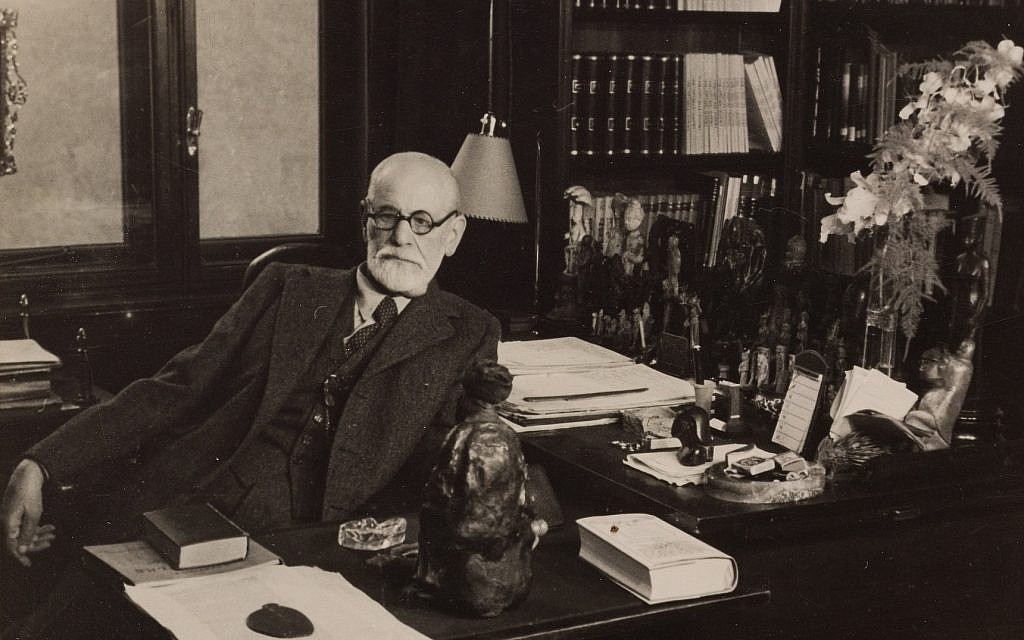
On March 15, 1938, three days after German troops crossed into Austria, approximately 250,000 people greeted Adolf Hitler when he appeared on the balcony of the Hofburg, Vienna’s imperial palace, to announce the political union of Austria with Nazi Germany through annexation.
The Anschluss launched mass arrests in Vienna and triggered a wave of anti-Semitic violence too. Jews were beaten and killed, their stores looted, and dozens committed suicide. As the German takeover of Austria began, Sigmund Freud was ensconced in his longtime residence and office at Berggasse 19 in Vienna’s 9th district. “Finis Austriae [the end of Austria],” the neurologist and founder of psychoanalysis observed in his diary at the time.
“As a Jew, [Freud] was automatically in danger as the undisputed public face of what most Nazi officials denounced as [his] Jewish pseudoscience,” Andrew Nagorski writes in his new book “Saving Freud,” published on August 23.
Nagorski explores Freud’s escape from Nazi Vienna to the safety of London, which began with a train to Paris on June 4, 1938. The journey was by no means easy, however, and took a concerted effort from what Nagorski calls “an ad hoc rescue squad.” This loyal group of Freudian followers included people such as Ernest Jones, William Bullitt, Marie Bonaparte and Freud’s daughter, Anna Freud.
“These were a mix of colorful personalities of divergent backgrounds and nationalities, but they all shared a common interest: a devotion to Freud and his theories,” Nagorski writes in the book’s opening chapter. “They also wanted Freud to overcome his reluctance to leave Vienna.”
Nagorski has spent more than three decades as an award-winning Newsweek foreign correspondent and editor in Germany, Russia, Poland, Italy and Hong Kong. From 2008 to April 2014, Nagorski was vice president and director of the international affairs think tank EastWest Institute.
The Scottish-born American journalist’s other books include “1941: The Year Germany Lost the War,” “The Nazi Hunters” and “Hitlerland: American Eyewitnesses to the Nazi Rise to Power.”
The Times of Israel caught up with Nagorski via Zoom from his home in St. Augustine, Florida. The conversation has been edited for clarity.
The Times of Israel: Sigmund Freud coined the term “psychoanalysis” in 1896. Can you speak about how the scientific and cultural movement grew in Vienna during the early 20th century?

Andrew Nagorski: It began with the Vienna Psychoanalytic Society. This was a small group that gathered every Wednesday evening at Freud’s residence in Vienna’s 9th district. Freud wanted to spread those ideas way beyond Vienna and Budapest, where most of the early followers were from.
Also, this early group of psychoanalysts were mostly Jewish. Freud did not want psychoanalysis to be perceived as a Jewish science. Moreover, he was conscious enough of antisemitism to know that if that happened, it would be to the detriment of psychoanalysis. He was therefore delighted when the Swiss psychologist Carl Jung, who was a gentile, expressed a fervent interest to become a follower of [psychoanalysis]. But they later had a falling out.
In the book you explore how the Nazis stole some of Freud’s ideas, which seems rather odd given the fact that they publicly burned his books in Berlin in 1933.
Indeed, the Nazis publicly denounced Freud’s work and psychoanalysis. But in 1936, Matthias Göring — the cousin of Hitler’s righthand man, Hermann Göring — launched the German Institute for Psychological Research and Psychotherapy in Berlin. This was based on the premise that the Nazis would create their own form of psychotherapy. The idea was that it would be purged from Jewish ideas and Jewish analysts. But in doing this, the Nazis were clearly building upon fundamental ideas that had been pioneered by Freud and his followers, even though they claimed it had nothing to do with Freud or the early versions of psychoanalysis.
Can you talk about Freud’s relationship with Zionism?
It was complicated. He was a board member of the Hebrew University in Jerusalem. Freud was not opposed to the notion of a Jewish state. He talked about being sympathetic to the Zionist impulse. But he also spoke about what he saw as the practical problems of a homeland for the Jews in what was then Mandatory Palestine.
This was expressed in a very famous letter which was buried for a long time in Israel.
In that letter, Freud said he did not see how Muslims and Christians would tolerate Jewish control of the Holy Land if the Zionist project were realized. He argued that it would be better to have a Jewish homeland somewhere else. But he also understood that, for historical and cultural reasons, which were fundamental to the idea of a Jewish state, this would never be acceptable to Jews. Freud therefore had contradictory impulses on this topic. He identified as a cultural Jew and was proud of his Jewish heritage. But he was an atheist with no connection to religious belief himself, even though he was fascinated by religion as a cultural subject.
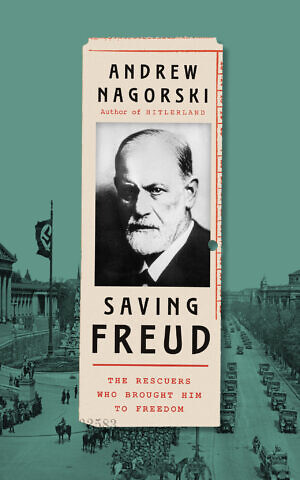
In the book you discuss Freud’s sex life, although there isn’t a great deal of gossip or scandal to speak about. What does this tell us about Freud’s work and biographical story?
Freud once said, “I’m all for greater sexual freedom, but I don’t make use of that sexual freedom myself.” He was a straitlaced guy. He married Martha, his wife, [at age 30] and he was a dedicated family man from this point on. Freud could talk with his patients, most of whom were very sexually active, about everything without inhibitions and judgment. But in his own life, he was very [sexually] cautious and conservative. I would even go so far as to say that he was awkward and shy around women.
Ernest Jones, Freud’s official biographer, is a key figure in your book. What role did Jones play in promoting Freud’s work in the Anglophile world?
Ernest Jones was a Welsh doctor who began reading Freud’s work in German as a young man. Jones was then introduced to Freud via Carl Jung. Jones brought Freud’s work into the English-speaking world. Previously, it was available only in German. Later, Jones became president of the International Psychoanalytical Society. Jones and Freud developed a real rapport. Jones really helped to make Freud a global figure. His three-volume biography on Freud is still the first place one should look when investigating Freud’s life.
You also explore the relationship between Anna Freud and her father. It was quite intense!
Anna was the youngest of the Freuds’ six children. Freud became her analyst. He advised against this later. Then as Freud got older, Anna took care of his daily needs, in his apartment in Berggasse 19 in Vienna, and then later at Freud’s house in Hampstead, London, where he died in September 1939. Anna also played an important role in the rescue operation for the Freud family. She negotiated with the Nazis, which helped overcome the bureaucratic obstacles standing in the way of them emigrating to England.
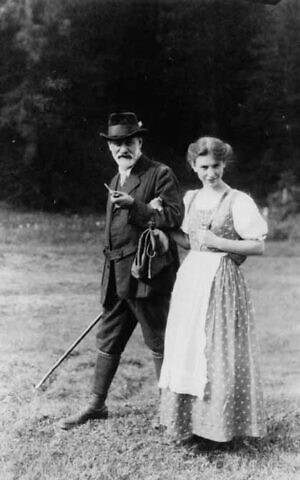
Under what conditions did Freud eventually escape Nazi Vienna? Was it simply a question of money? Or did his social and professional connections help with the evacuation?
Money, of course, came into the equation. But it wasn’t just a question of money. When the Anschluss happened, the Nazis appointed so-called trustees for prominent Jewish families [in Austria] — particularly rich Jewish families. Freud was part of this wealthy group, although he was by no means the richest. The Nazis created what they called a flight tax. This saw them assess the individual wealth of some of Vienna’s richest Jews. In Freud’s case, they calculated that he had a net worth [in assets] of about $50,000. This included his apartment and the International Psychoanalytic Publishing House. In today’s money that amounts to about a million dollars. The Nazis then ordered Freud to pay roughly 25 percent of this sum.
Did Freud pay the Nazis and where did he get the money?
A wealthy woman, Marie Bonaparte, who was the wife of Prince George of Greece and Denmark, and also the great-grandniece of Napoleon. She provided most of it in cash.
In 1938 there was not a lot of countries eager to accept Jewish refugees from the Third Reich. How did Freud manage to be accepted into England?
Ernest Jones played an important role. He pulled every string he could in London to make sure the Freuds got entry permits into England. Jones was very resourceful and had a lot of connections in high places. But until the Freuds got on the train in Vienna, on June 4, 1938, bound for Paris, it wasn’t clear if he and his family were going to get out of the country safely. Four of Freud’s sisters who remained behind later perished in the death camps during the Holocaust.
Was Freud in close contact with his four sisters?
Yes. In fact, he left them a good deal of money in the hope that they could survive. Freud was very worried about his sisters left in Austria. And when he got out, he asked Marie Bonaparte, who was working to get other Jews out of Austria and Germany, whether she could try again to get his sisters out. But it was not possible.
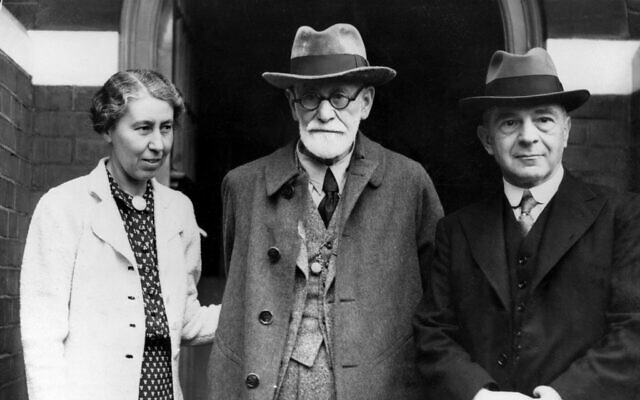
Freud lived much of his life under the Austro-Hungarian Empire, which collapsed in 1918. Did his memories of its liberal and tolerant political culture influence the misguided belief he held, through the 1930s, that Austria would not be taken over by the Nazis?
It definitely played a part. Freud always held this hope that the Austrian politicians would be able to keep the Nazis and Hitler at bay. He felt the antisemitism in Vienna, which he often complained about, would remain, albeit on a modest scale. But, of course, after the Anschluss that proved to be a major miscalculation. It’s important to remember too, that Freud had no desire to disrupt his life and to become an émigré, especially as he was coming towards the end of his life.
The Austrian novelist Stefan Zweig appears several times in this book. You seem to have a keen interest in his work.
I got the idea for writing this book when I was reading Stefan Zweig’s autobiography, “The World of Yesterday.” Zweig left Vienna in 1934 and died in Petrópolis, Brazil, in February 1942.
Zweig felt it was getting way too dangerous for [Jews] in the Austrian capital. Freud, meanwhile, stayed behind. Zweig later reconnected with Freud in London in 1938. Reading Zweig’s biographical story got me thinking about a question that really drove me to write this book: Why were so many Jews leaving Vienna at this time, and why was Freud so determined to stay?
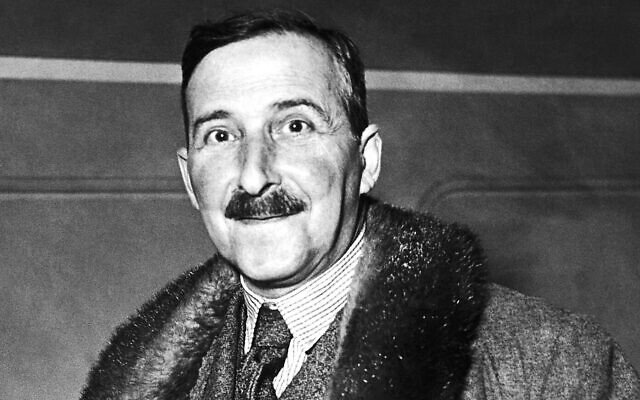
Were Zweig and Freud close friends?
No. But Zweig and Freud had a tremendous amount of respect for one another. They got to know each other fairly well in Vienna, and again in London. Freud appreciated Zweig as a writer, and Zweig appreciated Freud as the thinker of his age. Freud, after all, came from relative obscurity in his younger days to become probably one of the most celebrated intellectuals of the [early 20th] century.
Freud achieved celebrity status when he arrived in London in 1938. By that stage he was already a world-famous intellectual. Why were the British so in awe of him?
In Austria, Freud developed this fame gradually. He was a well-known figure in the cafes and streets of Vienna. But in London, he was treated as a huge celebrity and his arrival was seen as a major event which got huge coverage in the British press. A lot of Brits were very proud that he had chosen to end up there. And he was bombarded with letters and invitations by numerous universities and cultural institutions. Many other famous figures in Britain at the time came to see Freud at his home in North London, including H.G. Wells, Virginia Woolf and Salvador Dali.
While researching this book did you consider what might have happened to the Freud family had they stayed in Vienna after 1938?
Yes, it’s something I have thought about. Freud probably still would have died before the Holocaust began, as his life ended in London in September 1939. But I would guess that had he in stayed in Vienna after 1938, he and his family would have been increasingly terrorized by the Nazis and that his wife, Martha, and daughter, Anna, would have been killed in the Holocaust.
As reported by The Times of Israel
